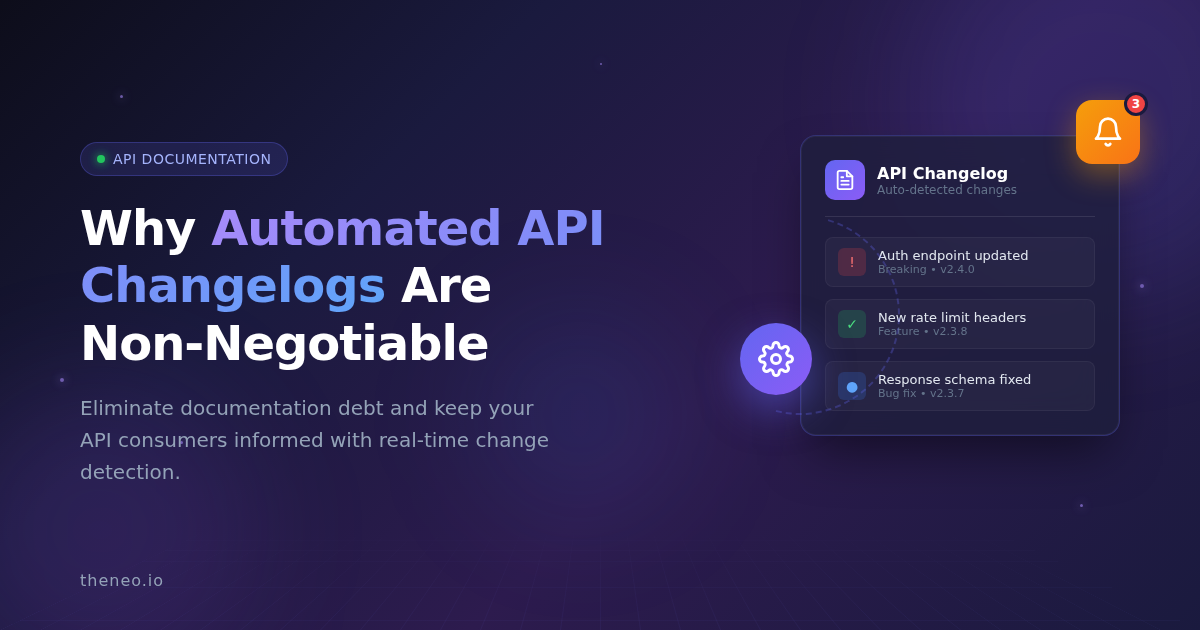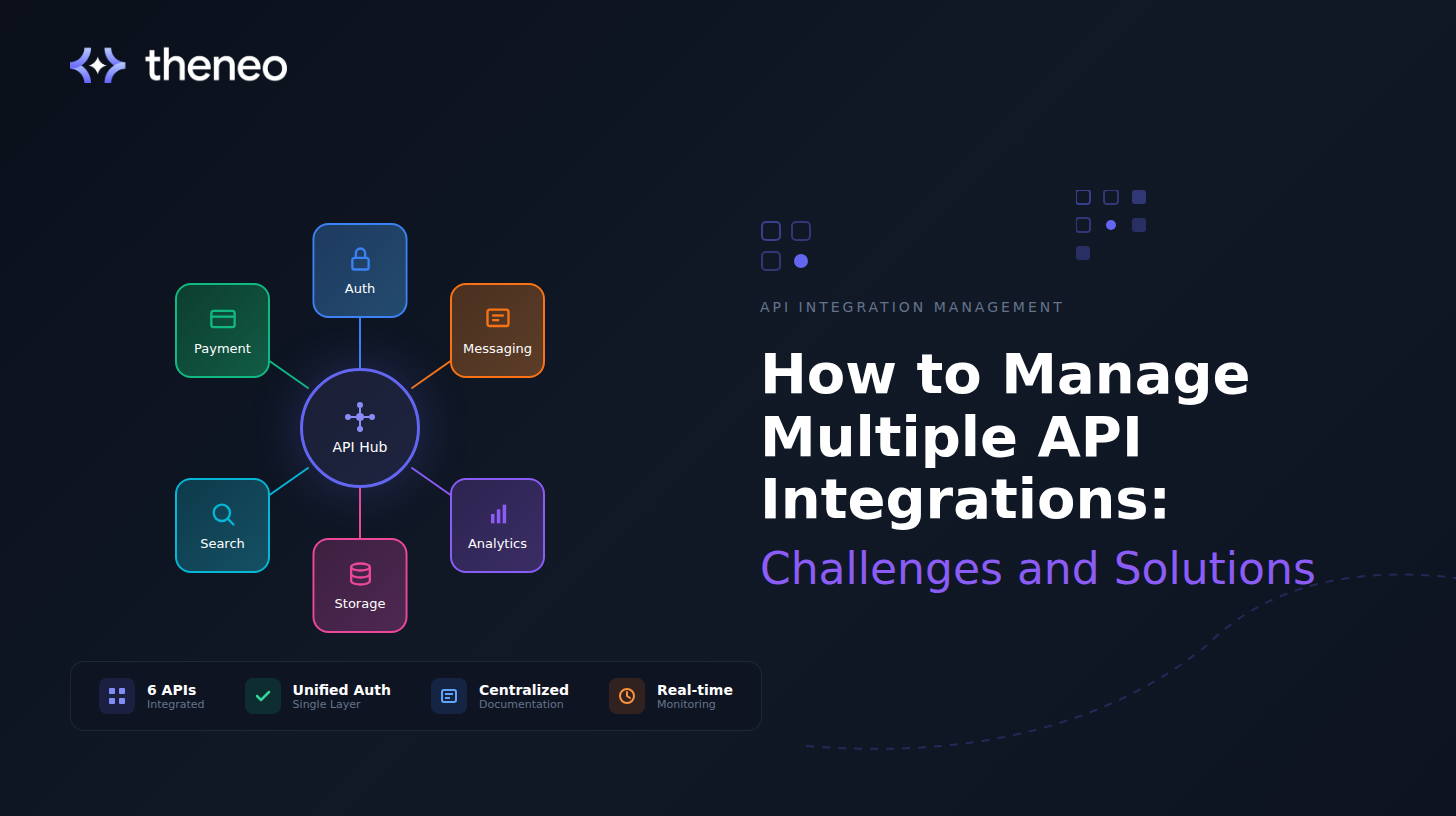API Management: Future Trends and Predictions
API management is evolving rapidly as organizations embrace digital transformation, cloud-native architectures, AI-driven automation, and IoT ecosystems. This article explores the current landscape of API management, emerging trends, and future predictions that will shape how businesses design, secure, and scale APIs.

API management is a critical aspect of modern software development and integration. As technology continues to evolve at a rapid pace, it is essential for organizations to stay ahead of the curve and anticipate future trends and advancements in API management. In this article, we will explore the current state of API management, discuss future trends, and make predictions about the future of this crucial domain.
Understanding API Management
Before we delve into the future trends and predictions, it is important to have a clear understanding of API management. At its core, API management refers to the process of creating, documenting, publishing, and securing APIs (Application Programming Interfaces) in a way that enables efficient and effective integration between various software systems.
API management is not just a technical concept, but a strategic approach that organizations adopt to streamline their software integration processes. It involves a combination of technical expertise, business acumen, and a deep understanding of the organization's goals and objectives.
When it comes to API management, there are several key factors to consider. One of the most important aspects is the design of the APIs themselves. APIs need to be well-designed, with a clear and intuitive structure that makes it easy for developers to understand and use them. A poorly designed API can lead to confusion, errors, and inefficiencies in the integration process.
Documentation is another crucial component of API management. It is not enough to simply create APIs; they need to be documented comprehensively so that developers can easily understand how to use them. Good documentation includes clear instructions, examples, and best practices, making it easier for developers to integrate their applications with the APIs.
Security is a paramount concern in API management. APIs often handle sensitive data, such as customer information or financial transactions. Therefore, it is essential to implement robust security measures to protect this data from unauthorized access. This includes authentication mechanisms, encryption protocols, and regular security audits to identify and address vulnerabilities.
In addition to design, documentation, and security, monitoring and analytics are also important components of API management. By monitoring API usage patterns, organizations can gain valuable insights into how their APIs are being utilized. This information can help identify areas for improvement, optimize performance, and identify potential issues before they become critical problems.
Furthermore, analytics can provide organizations with a deeper understanding of user behavior, allowing them to make data-driven decisions and optimize their APIs to better meet the needs of their users. By analyzing data on API usage, organizations can identify popular features, detect usage patterns, and make informed decisions about future enhancements and updates.
In conclusion, API management is a multifaceted discipline that encompasses various activities and components. It involves designing well-structured and intuitive APIs, documenting them comprehensively, implementing robust security measures, and leveraging monitoring and analytics to optimize performance and user experience. By adopting effective API management practices, organizations can achieve seamless integration, enhance business operations, and drive digital transformation.
The Current State of API Management
Before we dive into future trends and predictions, let's take a closer look at the current state of API management and understand the existing landscape.
API management has become an essential aspect of modern digital transformation. It enables organizations to seamlessly integrate various systems and applications, allowing them to leverage the power of APIs to create innovative solutions and drive business growth.
Market Overview
The API management market has seen significant growth in recent years, driven by the increasing demand for seamless integration and the rapid adoption of cloud computing. Organizations across various industries are recognizing the value of APIs in enabling digital transformation and leveraging them to create innovative solutions.
Leading API management platforms offer a range of features and capabilities, such as API gateway, developer portal, and analytics tools. These platforms provide organizations with the necessary tools to manage, secure, and analyze their APIs effectively.
API gateways act as intermediaries between clients and APIs, handling authentication, authorization, and traffic management. They ensure that only authorized requests are processed and provide a layer of security to protect sensitive data.
Developer portals play a crucial role in API management by providing developers with the necessary documentation, tutorials, and tools to easily consume and integrate APIs into their applications. These portals foster collaboration and innovation, enabling developers to build upon existing APIs and create new and exciting applications.
Analytics tools offered by API management platforms allow organizations to gain insights into API usage, performance, and user behavior. This data helps organizations make informed decisions, optimize their APIs, and identify potential areas for improvement.
Challenges in API Management
While API management has numerous benefits, it also presents certain challenges that organizations need to address. One of the key challenges is ensuring API security, as APIs often serve as entry points for attackers to gain access to sensitive data. Organizations must invest in robust security measures to mitigate potential risks.
API security involves implementing authentication and authorization mechanisms, encrypting data in transit, and regularly monitoring and patching vulnerabilities. Additionally, organizations should conduct regular security audits and penetration testing to identify and address any weaknesses in their API infrastructure.
Another challenge is managing the complexity of API integration. As organizations adopt multiple APIs from different providers, ensuring seamless integration becomes more challenging. Each API may have its own authentication mechanism, data format, and rate limits, making it difficult to maintain consistency and compatibility across different APIs.
API management platforms can help mitigate this challenge by providing a centralized control point for managing all APIs. They offer features such as API transformation, mediation, and orchestration, allowing organizations to standardize and streamline API integration processes.
Lastly, organizations need to address the challenge of scaling API management to meet increasing demands. As the number of APIs grows, organizations must ensure that their API management infrastructure can handle the increased load and maintain optimal performance.
Scaling API management involves implementing load balancing, caching, and horizontal scaling techniques. Organizations should also monitor API performance and usage patterns to identify potential bottlenecks and optimize their infrastructure accordingly.
In conclusion, API management is a critical component of modern digital transformation. It enables organizations to seamlessly integrate systems, leverage the power of APIs, and drive innovation. However, organizations must address challenges such as API security, complexity of integration, and scalability to ensure the effective management of their APIs.
Future Trends in API Management
As we look ahead, several trends are expected to shape the future of API management. Organizations need to stay informed and prepare for these trends to successfully navigate the evolving landscape.
The Rise of AI in API Management
Artificial Intelligence (AI) is poised to revolutionize API management. AI-powered technologies can automate various aspects of API management, including security, monitoring, and analytics. Machine learning algorithms can analyze API usage patterns, detect anomalies, and proactively identify potential issues.
AI can also play a crucial role in enhancing API security. By leveraging AI algorithms, organizations can detect and prevent attacks in real-time, ensuring the integrity and confidentiality of data transmitted through APIs.
The Impact of IoT on API Management
The Internet of Things (IoT) is rapidly growing, with an ever-increasing number of devices connected to the internet. This proliferation of IoT devices necessitates effective API management to enable seamless communication and data exchange between devices and applications.
API management platforms will need to adapt to the unique challenges posed by IoT, such as managing large volumes of data generated by IoT devices and ensuring secure and reliable connectivity. Organizations will need to invest in robust API management solutions that can handle the complexities of IoT integration.
Predictions for API Management
As we look to the future, it becomes clear that API management will play a central role in enabling digital transformation and driving innovation. Here are some predictions for the future of API management:
The Role of API Management in Digital Transformation
API management will become an integral part of digital transformation initiatives across industries. Organizations will leverage APIs to integrate disparate systems, adopt cloud-based solutions, and create innovative products and services.
Predicted Technological Advancements in API Management
Technological advancements, such as the widespread adoption of microservices and serverless architecture, will shape the future of API management. These advancements will enable organizations to build more modular and scalable APIs, enhancing flexibility and agility.
Preparing for the Future of API Management
To prepare for the future, organizations need to equip themselves with the necessary skills and strategies to adapt to emerging API trends. Here are some key considerations:
Necessary Skills for Future API Management
As API management becomes more complex, organizations need professionals with the skills to navigate this evolving landscape. Skills in API design, security, and analytics will be in high demand. Organizations should invest in training and hiring professionals with expertise in these areas.
Strategies for Adapting to Future API Trends
Organizations should develop strategies to proactively adapt to emerging API trends. This includes keeping a pulse on the latest industry developments, partnering with API management experts, and continuously evaluating and evolving their API management infrastructure.
In conclusion, API management is a critical discipline that organizations need to master to thrive in the digital age. By understanding the current state, future trends, and predictions in API management, organizations can stay ahead of the curve, unlock new opportunities, and drive innovation.
API management is a critical aspect of modern software development and integration. As technology continues to evolve at a rapid pace, it is essential for organizations to stay ahead of the curve and anticipate future trends and advancements in API management. In this article, we will explore the current state of API management, discuss future trends, and make predictions about the future of this crucial domain.
Understanding API Management
Before we delve into the future trends and predictions, it is important to have a clear understanding of API management. At its core, API management refers to the process of creating, documenting, publishing, and securing APIs (Application Programming Interfaces) in a way that enables efficient and effective integration between various software systems.
API management is not just a technical concept, but a strategic approach that organizations adopt to streamline their software integration processes. It involves a combination of technical expertise, business acumen, and a deep understanding of the organization's goals and objectives.
When it comes to API management, there are several key factors to consider. One of the most important aspects is the design of the APIs themselves. APIs need to be well-designed, with a clear and intuitive structure that makes it easy for developers to understand and use them. A poorly designed API can lead to confusion, errors, and inefficiencies in the integration process.
Documentation is another crucial component of API management. It is not enough to simply create APIs; they need to be documented comprehensively so that developers can easily understand how to use them. Good documentation includes clear instructions, examples, and best practices, making it easier for developers to integrate their applications with the APIs.
Security is a paramount concern in API management. APIs often handle sensitive data, such as customer information or financial transactions. Therefore, it is essential to implement robust security measures to protect this data from unauthorized access. This includes authentication mechanisms, encryption protocols, and regular security audits to identify and address vulnerabilities.
In addition to design, documentation, and security, monitoring and analytics are also important components of API management. By monitoring API usage patterns, organizations can gain valuable insights into how their APIs are being utilized. This information can help identify areas for improvement, optimize performance, and identify potential issues before they become critical problems.
Furthermore, analytics can provide organizations with a deeper understanding of user behavior, allowing them to make data-driven decisions and optimize their APIs to better meet the needs of their users. By analyzing data on API usage, organizations can identify popular features, detect usage patterns, and make informed decisions about future enhancements and updates.
In conclusion, API management is a multifaceted discipline that encompasses various activities and components. It involves designing well-structured and intuitive APIs, documenting them comprehensively, implementing robust security measures, and leveraging monitoring and analytics to optimize performance and user experience. By adopting effective API management practices, organizations can achieve seamless integration, enhance business operations, and drive digital transformation.
The Current State of API Management
Before we dive into future trends and predictions, let's take a closer look at the current state of API management and understand the existing landscape.
API management has become an essential aspect of modern digital transformation. It enables organizations to seamlessly integrate various systems and applications, allowing them to leverage the power of APIs to create innovative solutions and drive business growth.
Market Overview
The API management market has seen significant growth in recent years, driven by the increasing demand for seamless integration and the rapid adoption of cloud computing. Organizations across various industries are recognizing the value of APIs in enabling digital transformation and leveraging them to create innovative solutions.
Leading API management platforms offer a range of features and capabilities, such as API gateway, developer portal, and analytics tools. These platforms provide organizations with the necessary tools to manage, secure, and analyze their APIs effectively.
API gateways act as intermediaries between clients and APIs, handling authentication, authorization, and traffic management. They ensure that only authorized requests are processed and provide a layer of security to protect sensitive data.
Developer portals play a crucial role in API management by providing developers with the necessary documentation, tutorials, and tools to easily consume and integrate APIs into their applications. These portals foster collaboration and innovation, enabling developers to build upon existing APIs and create new and exciting applications.
Analytics tools offered by API management platforms allow organizations to gain insights into API usage, performance, and user behavior. This data helps organizations make informed decisions, optimize their APIs, and identify potential areas for improvement.
Challenges in API Management
While API management has numerous benefits, it also presents certain challenges that organizations need to address. One of the key challenges is ensuring API security, as APIs often serve as entry points for attackers to gain access to sensitive data. Organizations must invest in robust security measures to mitigate potential risks.
API security involves implementing authentication and authorization mechanisms, encrypting data in transit, and regularly monitoring and patching vulnerabilities. Additionally, organizations should conduct regular security audits and penetration testing to identify and address any weaknesses in their API infrastructure.
Another challenge is managing the complexity of API integration. As organizations adopt multiple APIs from different providers, ensuring seamless integration becomes more challenging. Each API may have its own authentication mechanism, data format, and rate limits, making it difficult to maintain consistency and compatibility across different APIs.
API management platforms can help mitigate this challenge by providing a centralized control point for managing all APIs. They offer features such as API transformation, mediation, and orchestration, allowing organizations to standardize and streamline API integration processes.
Lastly, organizations need to address the challenge of scaling API management to meet increasing demands. As the number of APIs grows, organizations must ensure that their API management infrastructure can handle the increased load and maintain optimal performance.
Scaling API management involves implementing load balancing, caching, and horizontal scaling techniques. Organizations should also monitor API performance and usage patterns to identify potential bottlenecks and optimize their infrastructure accordingly.
In conclusion, API management is a critical component of modern digital transformation. It enables organizations to seamlessly integrate systems, leverage the power of APIs, and drive innovation. However, organizations must address challenges such as API security, complexity of integration, and scalability to ensure the effective management of their APIs.
Future Trends in API Management
As we look ahead, several trends are expected to shape the future of API management. Organizations need to stay informed and prepare for these trends to successfully navigate the evolving landscape.
The Rise of AI in API Management
Artificial Intelligence (AI) is poised to revolutionize API management. AI-powered technologies can automate various aspects of API management, including security, monitoring, and analytics. Machine learning algorithms can analyze API usage patterns, detect anomalies, and proactively identify potential issues.
AI can also play a crucial role in enhancing API security. By leveraging AI algorithms, organizations can detect and prevent attacks in real-time, ensuring the integrity and confidentiality of data transmitted through APIs.
The Impact of IoT on API Management
The Internet of Things (IoT) is rapidly growing, with an ever-increasing number of devices connected to the internet. This proliferation of IoT devices necessitates effective API management to enable seamless communication and data exchange between devices and applications.
API management platforms will need to adapt to the unique challenges posed by IoT, such as managing large volumes of data generated by IoT devices and ensuring secure and reliable connectivity. Organizations will need to invest in robust API management solutions that can handle the complexities of IoT integration.
Predictions for API Management
As we look to the future, it becomes clear that API management will play a central role in enabling digital transformation and driving innovation. Here are some predictions for the future of API management:
The Role of API Management in Digital Transformation
API management will become an integral part of digital transformation initiatives across industries. Organizations will leverage APIs to integrate disparate systems, adopt cloud-based solutions, and create innovative products and services.
Predicted Technological Advancements in API Management
Technological advancements, such as the widespread adoption of microservices and serverless architecture, will shape the future of API management. These advancements will enable organizations to build more modular and scalable APIs, enhancing flexibility and agility.
Preparing for the Future of API Management
To prepare for the future, organizations need to equip themselves with the necessary skills and strategies to adapt to emerging API trends. Here are some key considerations:
Necessary Skills for Future API Management
As API management becomes more complex, organizations need professionals with the skills to navigate this evolving landscape. Skills in API design, security, and analytics will be in high demand. Organizations should invest in training and hiring professionals with expertise in these areas.
Strategies for Adapting to Future API Trends
Organizations should develop strategies to proactively adapt to emerging API trends. This includes keeping a pulse on the latest industry developments, partnering with API management experts, and continuously evaluating and evolving their API management infrastructure.
In conclusion, API management is a critical discipline that organizations need to master to thrive in the digital age. By understanding the current state, future trends, and predictions in API management, organizations can stay ahead of the curve, unlock new opportunities, and drive innovation.
Founder & CEO @ Theneo: Pioneering AI Co-Pilot for crafting Stripe-esque, engaging API docs.

.jpeg)




